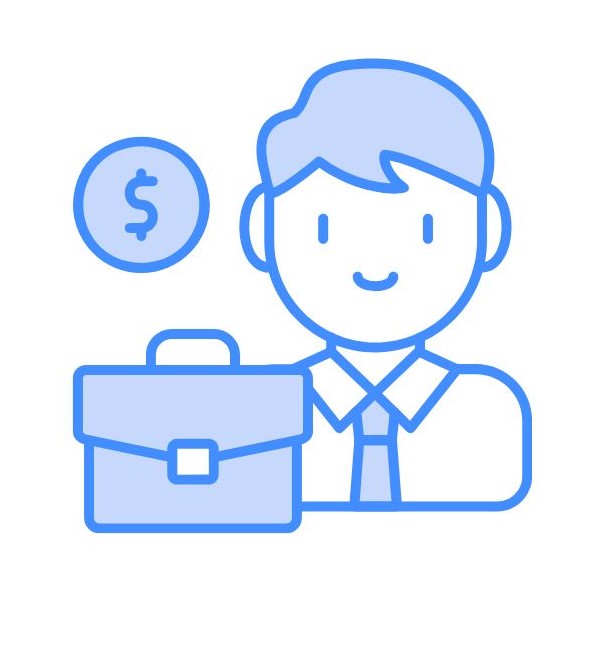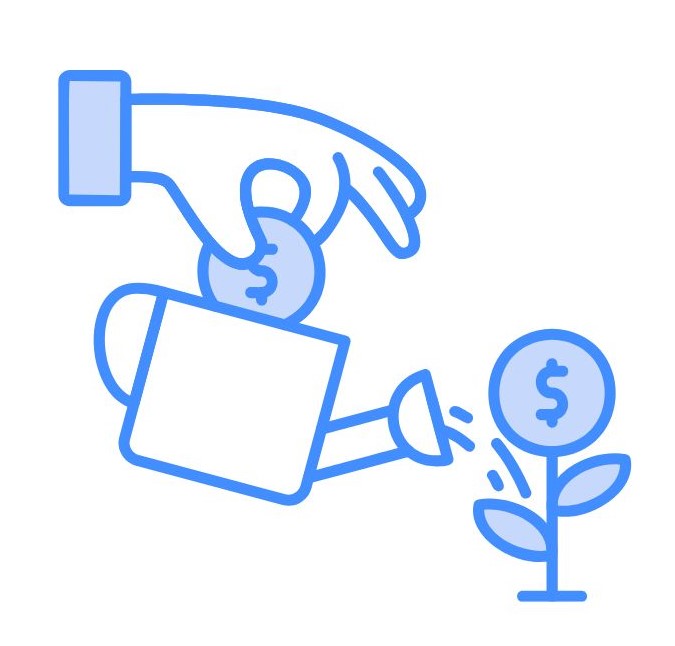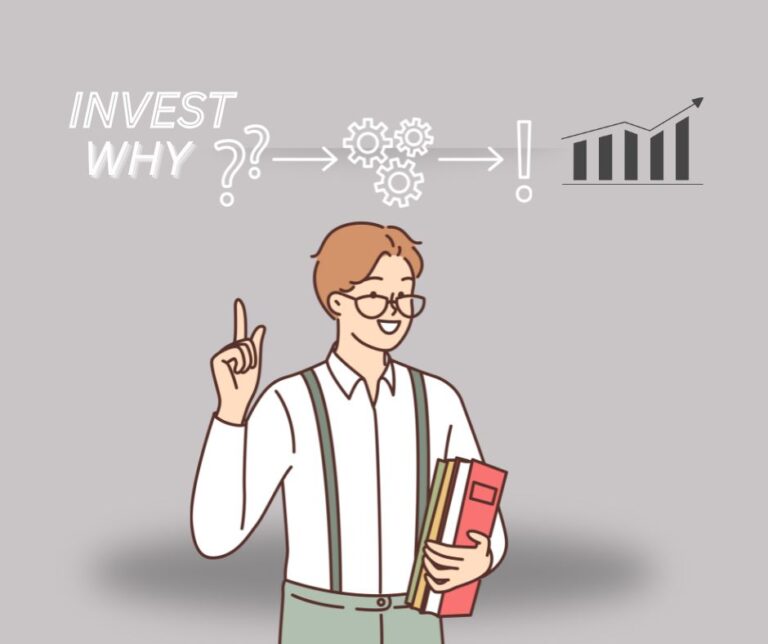
Identify, where you are!
Identifying your financial position is the first step towards achieving your goals. Are you aware of your current savings, debts, and investments? Understanding where you stand financially can empower you to make informed decisions and create a roadmap for your future
Your journey to financial clarity starts here!
Stages Of Financial Journey-
Many people want to become financially independent. They want to earn money in multiple ways and fulfil all their desires.
I also want it, and it’s not wrong. But you reach your target only by following a proper, foolproof process.
Do you not want to have sufficient bank balance? Or have a luxury car?
Or have more than one stream of income?
Or that your money works for you?
Those desires and wants could be different for everyone.
And ways of fulfilling these desires and wants may also be different.
To identify the way or process to fulfil those desires and wants, you must know where you are.
in simple words, you should know the stages of financial journey and where you are standing
I made many mistakes in my financial journey, and in my banking career, I met many people who were making the same mistakes. I learned that at the beginning of a financial journey, you always should know where you are.
It’s not a one-day exercise but a long journey to conquer the battle.
A battle with ourselves.
Suppose you have debt, and your income is barely enough so that you can fulfil your debt liability with your basic needs. Then you must not think about investing but about an extra income first.
But if you have a sufficient bank balance and no personal debt, you should consider a good investment.
Thus, everyone has different financial needs. If you know this, you can reach your target smoothly.
In this article, we will discuss the stages of getting financial freedom and, at every stage, what should be your way to reach your target.

Dependency
The first stage of the financial journey. In this stage, you are dependent on someone for your basic needs, and you will not have sufficient income on your own to pay your life expenses.
There is no burden on you to earn money.
And fulfilling your financial responsibilities.
If you are earning something, then it is only for your own expenses.
A maximum number of teenagers fall in this category.
And do not know the importance of this period in their financial journey,
It is a very crucial period of the financial journey as your financial decisions significantly impact your journey towards independence.
But if you are depending on someone else, then how is this stage very important?
This is the stage where you develop your financial habits, which will shape your financial future.
If you are earning a little income and depend on your family. Then, you will also get some offers of a personal loan from some financial institutions.
Or you can buy some consumer products on a loan based on your credit score.
But if you take these loans without proper planning, then it could be a disaster for your financial future.
I know it is very difficult for a teenager to hear about frugality but remember, frugality is an important part of personal finance.
A wrong decision may spoil your whole financial journey. You are developing a habit, and soon, you may not have a good credit score or a sufficient income in an inverse condition.
Or in near age, you face “lifestyle creep”
And if you have developed a habit of taking unnecessary loans, then, sure, it will be harmful for your next financial journey steps.
Do not worry. You are not alone at this stage, and if you are in it, it could be the beginning of a fantastic financial journey.
In this stage, you are in a cozy cocoon of student life and ready to spread your wings
Or you are ready to start earning and to go to the next step of your journey.
You may be ready to accept your first paycheck and very excited about it, but always remember your responsibilities.
What to do–
Learn, learn, and learn.
Try to enhance your chances of increasing your income by new learnings.
Also, try some additional skills which are beneficial for your personal development and your career growth.
Analyze your conditions and how much you can rely on your family, or within how much time your family will be dependent on you and make decisions about what you can do. Here the priorities of every person will be different based on their responsibilities.
Also, learn some basic principles of personal finance and make decisions accordingly.
Common mistakes
- Taking a loan without need and proper repayment planning.
- Avoidance of the learning process, which may be beneficial in the early stages of your financial growth.
- Giving more emphasis on money rather than learning.

Survival
In this stage, you are ready to control your finances.
If you can meet your financial obligation on your own, then congratulations, you are on this stage.
Here you may have a regular income or have this much income that you can pay all your obligations on your own.
Mostly, early career starters fall into this category.
Here you wait for your next salary and think about taking some small loans to fulfil your needs.
Here you make yourself aware of maintaining a good credit score, and some people even take loans only to maintain a good credit score.
But remember, by taking loans without proper repayment planning, you can spoil your whole budget.
If you take the proper steps, then you can go to the next stage easily and swiftly.
What to do-
In this step, you should have a clear goal about where you must go in the long term. And of course, you must be fully aware of what your responsibilities are and how much time you will take to complete your targets with your current income.
You should start some small savings to develop a habit.
Here you should have a personal mission statement and a personal budget also.
You should try to get out of small loans and try to increase your income.
Common mistakes:
- Taking debt without proper repayment planning.
- Not having a budget.
- Not having a long-term goal
- Avoidance of new learnings
- Not tracking your spending.
- Not developing the habit of saving

Stability
the most important stage of the financial journey.
If you do not have any consumer loans and have a steady income, then you are in this stage.
You have this much income that you have some savings, and you try to invest.
You gain confidence and control over your financial future.
Here you make your financial foundation, and a small decision can make a great impact on your whole life.
In this stage, you try to fulfil all your financial fantasies and that all meet the real world.
Here impulse buying takes place in life.
Lifestyle creep can also take place.
Overconfidence can lead you to unnecessary loans.
Here you may be an individual or a couple, and accordingly your income.
In this stage, people make reasonable plans for future expenses, save money for retirement plans and major purchases, and make an emergency fund.
What to do-
Here you should try to find new ways to make more money. Remember you are solely responsible for your income.
If your spouse does not have any income, then you should try to find a way that he or she can make an income.
Life is unpredictable. You should have an emergency fund.
You should be committed to your savings every month.
Furthermore, You should optimize your tax savings and have retirement planning.
You must have health insurance.
You should use your credit card effectively and efficiently.
Most importantly, your investment strategy must be in line with your long-term goal as well as your values and morals.
Common mistakes:
- Not Having health insurance
- not having an emergency fund.
- Having an impulse buying
- Having lifestyle inflation
- Having credit card debt
- Not starting an investment

Flexibility
In this stage, you do not depend on paycheck to paycheck. Indeed, you have surplus money as you can survive at least 6 months without your salary.
Here you can live and work as you choose.
Here money is not just a thing which you earn for a living, you can use this as a tool to earn more money.
From here, by investing and using your skills, you can earn more and decrease dependency on your salary.
What to do,
Here you should start investing in some medium-risk and moderate returns.
As well as that, you should also increase your savings.
Here you must not spend more than your earnings as you can easily increase your spending by taking an easy loan.
Common mistakes:
- Spending more than income
- Not starting an investment with moderate return expectations
- Not using skills to increase income.
- Not having multiple streams of income

Security
When your investment income covers your basic needs, you are secure financially.
Now you are not relying on your day job.
Here you can take a break from your job if you want to.
You can be unemployed without worrying about a period.
Here your retirement plan must be started.
What to do,
In this stage, you must have strong retirement planning.
You must know how much time you must retire within. How much money will you need for retirement and how will you achieve that goal?
Here you could consider investing in other assets besides a retirement account. It may be a taxable account, rental real asset, or you should have your own small business.
Life is unexpected, it can surprise you whether good or bad, you have an emergency fund for a bad surprise.
But at this stage, you must have an opportunity fund also for a good surprise as well.
Common mistakes
- Not making a diversified portfolio.
- not having an opportunity fund.
- Not having a strong and clear retirement plan

Independence
If your investment income or passive income supports your current standard of living, then you are at this stage.
At this stage, you will not have any personal debt.
Congratulations, if you are at this stage then you can retire without worrying about the cost of living.
Here you may have a huge amount of money in your investment portfolio, or you have a strong rental income, or you have a passive income so you can retire without worrying about the cost of living.
What to do,
Here, the most important thing is to manage the money efficiently.
You should have a diversified portfolio and should have some fixed assets also.
You also can turn your portfolio into some assets which can generate fixed income, such as rental real estate assets.
Common mistakes:
- Not managing money efficiently
- Not having a diversified portfolio
- Not having any fixed assets

Abundance
At this stage, you do not have to worry about money.
Here you can take more risks with money you are willing to lose.
Even you can live relying on the 4% rule, where you can withdraw 4% of your investment in stocks and bonds for your living, and your money will continue to grow and will not run out.
At the independence stage, you will have to manage your money efficiently as you have to monitor swings in your investment portfolio, while at the abundance stage, you will not have such a worry.
Everyone wants financial progress. However, any progress needs proper planning and continued efforts. Discipline is always important when you do your financial planning. If we follow the proper process, then escalation from one step to another is prompt and easy.





2 Comments